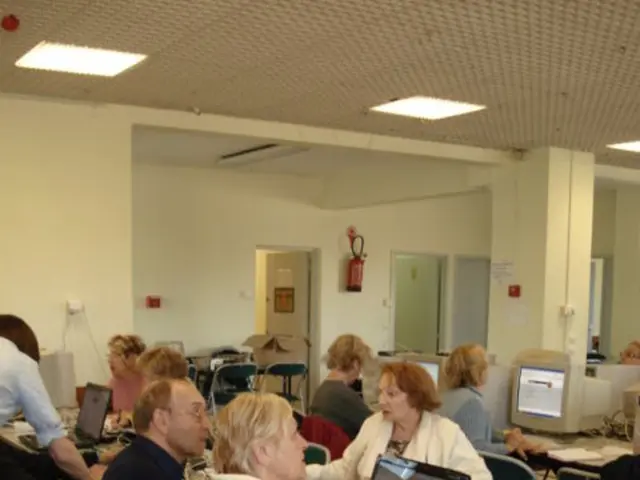Shining a Light on the Long-term Struggles of SED Dictatorship Survivors
Exhibit compassion and understanding towards those who suffer from unjust treatment. - Enhanced Justice: Champions for Unfairly Treated Individuals' Rights
Thuringia's Commissioner for the Processing of the SED Dictatorship, Peter Wurschi, shakes his head in dismay at the lax response of doctors, authorities, and even nursing homes regarding the long-term effects suffered by victims of SED injustice. According to Wurschi, these consequences continue to be downplayed instead of being addressed with the gravity they deserve.
An event wrapping up the research project "Health Long-Term Effects of SED Injustice" on Wednesday is designed to gather professionals in medicine, therapy, politics, public administration, and victim support. The political scientist laments a "knowledge gap" about working with individuals traumatized by this type of oppression and stresses the need for understanding that these problems are not personal afflictions but are deeply rooted in their histories.
Easing the Path to Assistance through Legislative Change
A research consortium of universities in Jena, Leipzig, Magdeburg, and Rostock has spent four years studying the health conditions of SED injustice victims as part of this project. Their findings have subsequently contributed to an amendment of the SED injustice compensation laws in September 2024. The new laws will make it simpler for victims of SED injustice to claim assistance or rehabilitation, according to Bernhard Strauß, a psychology professor in Jena and spokesperson for the research consortium. Previously, a painstaking proof of an immediate causal connection was required, a feat almost impossible in practice, Strauß asserts.
Comparative Studies Reveal Higher Susceptibility to Illness
Comparative studies between victims of Stasi subversion measures and individuals from the DDR with no such experiences have shown biological differences, Strauß discloses. Victims of subversion, for instance, have significantly higher inflammation parameters, suggesting increased susceptibility to physical illnesses. In the future, those demonstrably impacted by SED injustice should receive aid if their illness pattern matches the typical pattern for victims of injustice.
A Tentative Estimate of 25,000 Doping Victims
A corresponding catalog of criteria is now to be developed in collaboration with, among others, the Federal Ministry of Justice and the Federal Ministry of Social Affairs, through an expert committee, Strauß explains. The current research estimates the number of DDR doping victims in elite and recreational sports to be as many as 25,000. The number of those affected by subversion is more challenging to estimate but is likely in the five-digit range, the expert estimates.
Wurschi views these research findings as a late acknowledgment for many victims. "It is a source of great satisfaction," he proclaims, "that science has now proven that the feelings or health status they've had to endure are indeed linked to the repression of the DDR era."
Related Topics:- Trauma and health effects under authoritarian regimes- Post-traumatic stress disorder (PTSD)- Cardiovascular diseases- Immune system problems- Psychological support- Physical healthcare- Social support- Historical recognition- Transitional justice processes.
- The commissioner for processing the SED Dictatorship, Peter Wurschi, expressed his disappointment over the apparent disregard by medical professionals, authorities, and nursing homes towards the long-term health effects suffered by victims of SED injustice.
- According to Wurschi, these consequences are often downplayed rather than addressed with the seriousness they require, highlighting a need for comprehensive understanding about working with individuals traumatized by such oppression.
- The research project "Health Long-Term Effects of SED Injustice" revealed that victims have significantly higher inflammation parameters, suggesting a higher susceptibility to physical illnesses compared to individuals with no such experiences from the DDR.
- In the future, those demonstrably impacted by SED injustice should receive aid if their illness pattern matches the typical pattern for victims of injustice, as stated by Bernhard Strauß, a psychology professor and spokesperson for the research consortium.
- The expert committee, in collaboration with various ministries, aims to develop a corresponding catalog of criteria to identify and aid victims of SED injustice, with estimates suggesting up to 25,000 victims in elite and recreational sports, and a potentially larger number of those affected by subversion.








